Is coffee bad when it's not sour? Coffee acid is not acid has nothing to do with quality, the whole system likes!
Professional coffee knowledge exchange more coffee bean information please follow the coffee workshop (Wechat official account cafe_style)
"Please give me a cup of coffee that is not sour, thank you!"
This should be one of the most common situations encountered in boutique coffee shops, and customers with a long history of drinking coffee tend to be less receptive to sour taste.
Although people's intake of "coffee" has increased a lot in recent years, thanks to the take-out coffee war, coffee is more readily available. But there are relatively few people who are willing to try coffee flavor except bitter taste. Even in recent years, there have been some strange "disdain chains" in the coffee circle: the acceptance of caffeic acid represents the ability to taste coffee; if you don't like sour coffee, it will be thought that you don't know how to appreciate coffee.
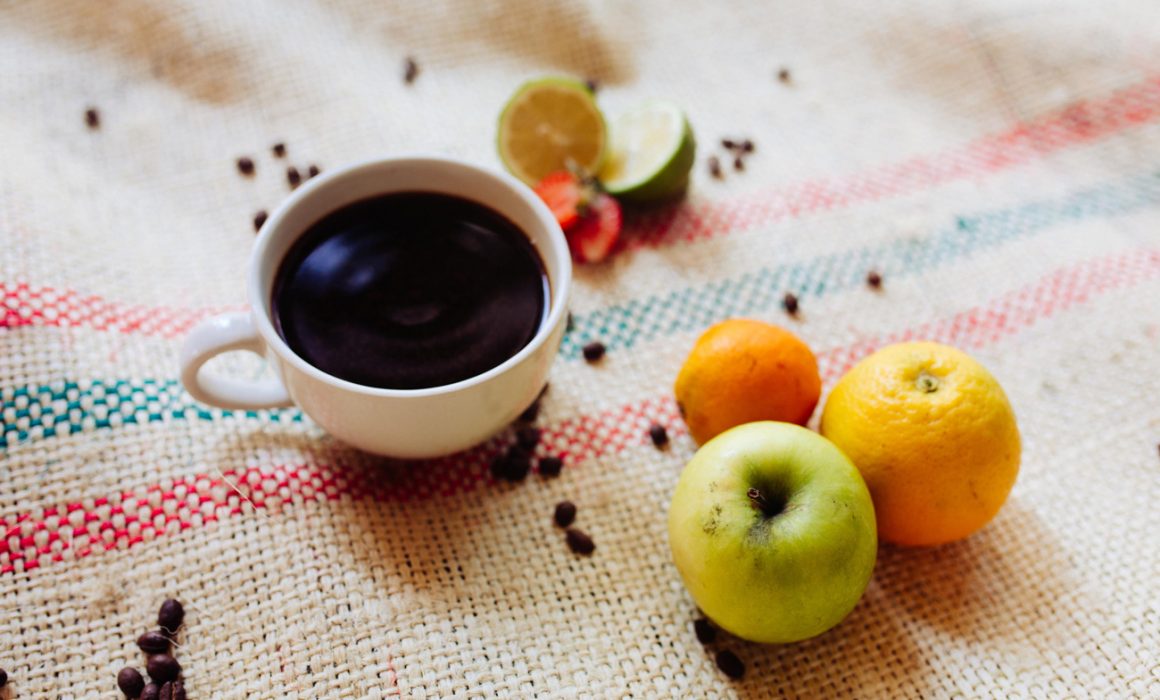
Under the influence of the first wave of coffee and the second wave of coffee revolution, when you suddenly drink a cup of sour coffee, you may think that it is sour coffee that stinks away without knowing how long it will last. In the past, in order to reduce the weight loss (moisture content) of roasted beans, businessmen did not pick defective beans, and the heart of beans was not cooked, so that rancid coffee entered the market, the unripe astringency and the disgusting taste of defective beans. The rancid coffee in my memory is so terrible that it affects the impression of coffee and the perception of "sour" in the future.
Even, "Chinese people do not like to drink sour coffee" has become a common perception, but the elegant aroma of pleasant sour and sweet taste, coupled with mellow and rich texture, is really a great enjoyment in the world, satisfying both spiritually and physically. In the editor's experience, after correct teaching and providing high-quality coffee beans, consumers are mostly able to swim in the delicacy of various coffee varieties, not all imagined Chinese who do not drink sour coffee. moreover, more than 70% of the world's coffee is grown in Arabica with acid, so what choice is there if you don't drink acid?
Many people who don't like sour coffee are just once bitten by snakes and afraid of grass rope for ten years.
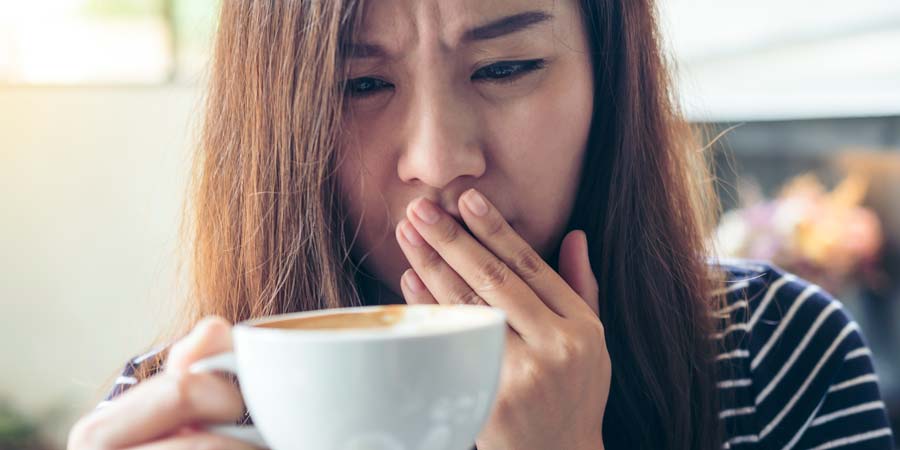
This acid is not the other acid.
Good fruit acid is completely different from rancidity and acerbity.
"acid": acid that is irritating; acid that has a mild fragrance of fruit; acid that resembles rotten fruit.
Imagine the acidity of a green orange (not yet ripe) or lemon juice; it's exciting.
Imagine when you eat the acidity of a yellow orange or apple (ripe); it is a lively, gentle, fragrant acid that secretes saliva.
Imagine when you eat the acid of a rotten orange (overfermented); it's not very sour; but it just makes you sick.
The "acid" (non-rancidity) of real fruit will be sweet, and we call this natural reaction of Shengjin Huigan as "sweet and sour shock"--
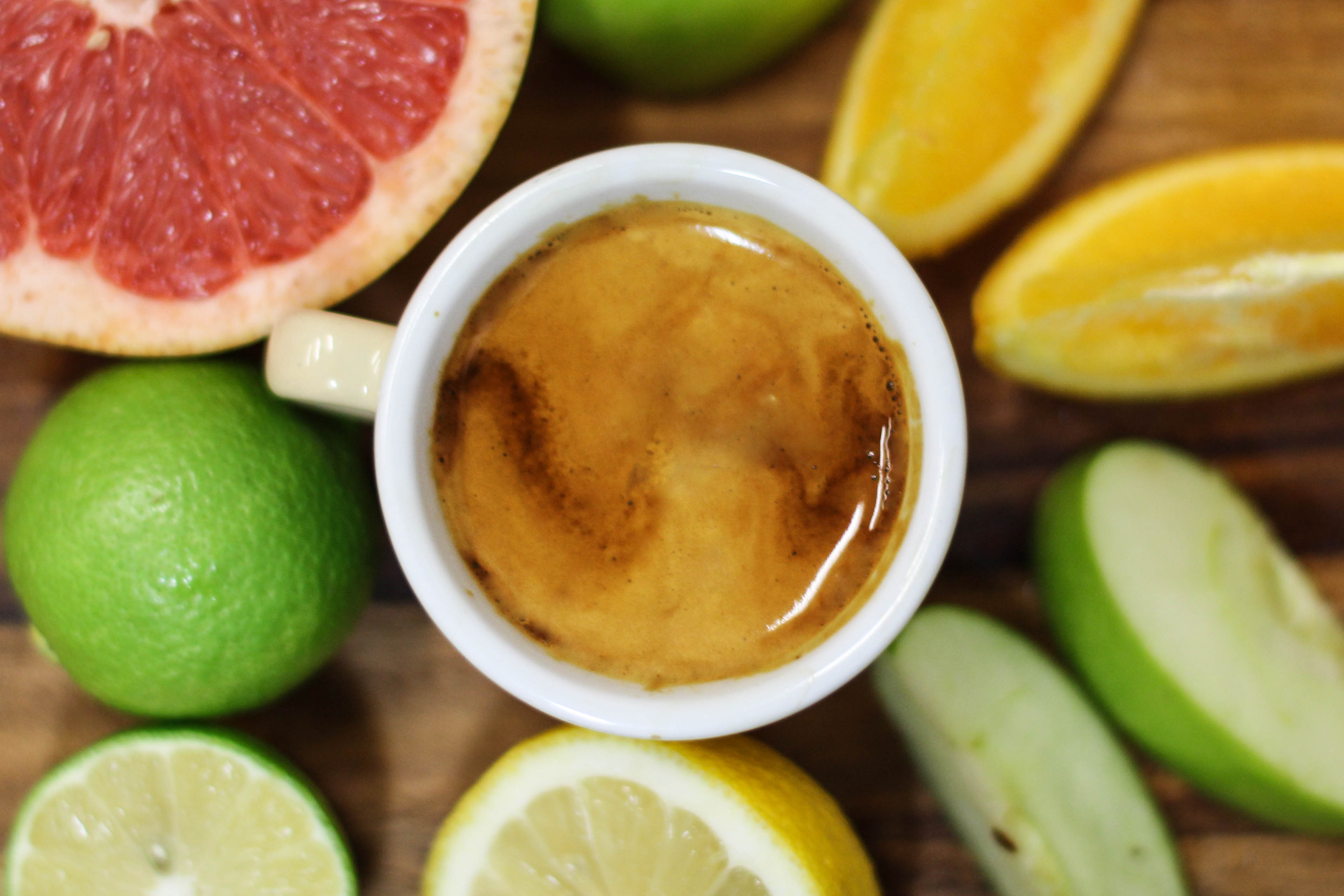
Coffee beans with delicate acidity and obvious flower and fruit flavor are usually roasted shallower, and the delicate aroma is easy to be worn off by long-term high temperature, so each kind of coffee beans with different personalities must be carefully considered when roasting, and what characteristics should be treated. Every link is penny-pinching, and every minute counts. Sometimes drinking sour coffee is not necessarily due to the poor quality of beans, but also to the poor skills of the roaster.
The bean has its original characteristics, but how to set it off, show its advantages to the most beautiful posture, and even stimulate it and give it a more balanced and perfect taste spectrum all depends on the baker's understanding of the bean itself. so "baking degree" is actually a very rough division, and the meaning of the same noun will be interpreted differently in different regions and countries.
We often use "Acidity" in coffee taste, which is translated as "sour and acidic" in Chinese. It is often misunderstood as the acidity in pH value or the sour taste of lemon or vinegar, but it is not a concept. Coffee lovers usually describe the "Acidity" of coffee flavor as "sour", which describes a vivid, bright, fresh and refreshing feeling, just like tasting wine to describe the dry taste.
"Acidity" has many different characteristics, which is an important basis for distinguishing coffee beans from different producing areas, such as coffee from Yemen or East Africa, which has an impressive fruity aroma or a texture similar to red wine, while some from the very highlands of Central America or the Caribbean are usually with so-called bright acidity.
Usually, when distinguishing the taste of coffee, the coffee liquid is covered with sour, bitter, sweet and salty taste buds on the tongue, so that a soft sour taste can be felt on both sides of the tongue. In the meantime, although the coffee is not salty, the taste does not need salty taste, but it is still experienced automatically and consciously evenly and carefully, so that we can grasp the skills to distinguish the different tastes of coffee.
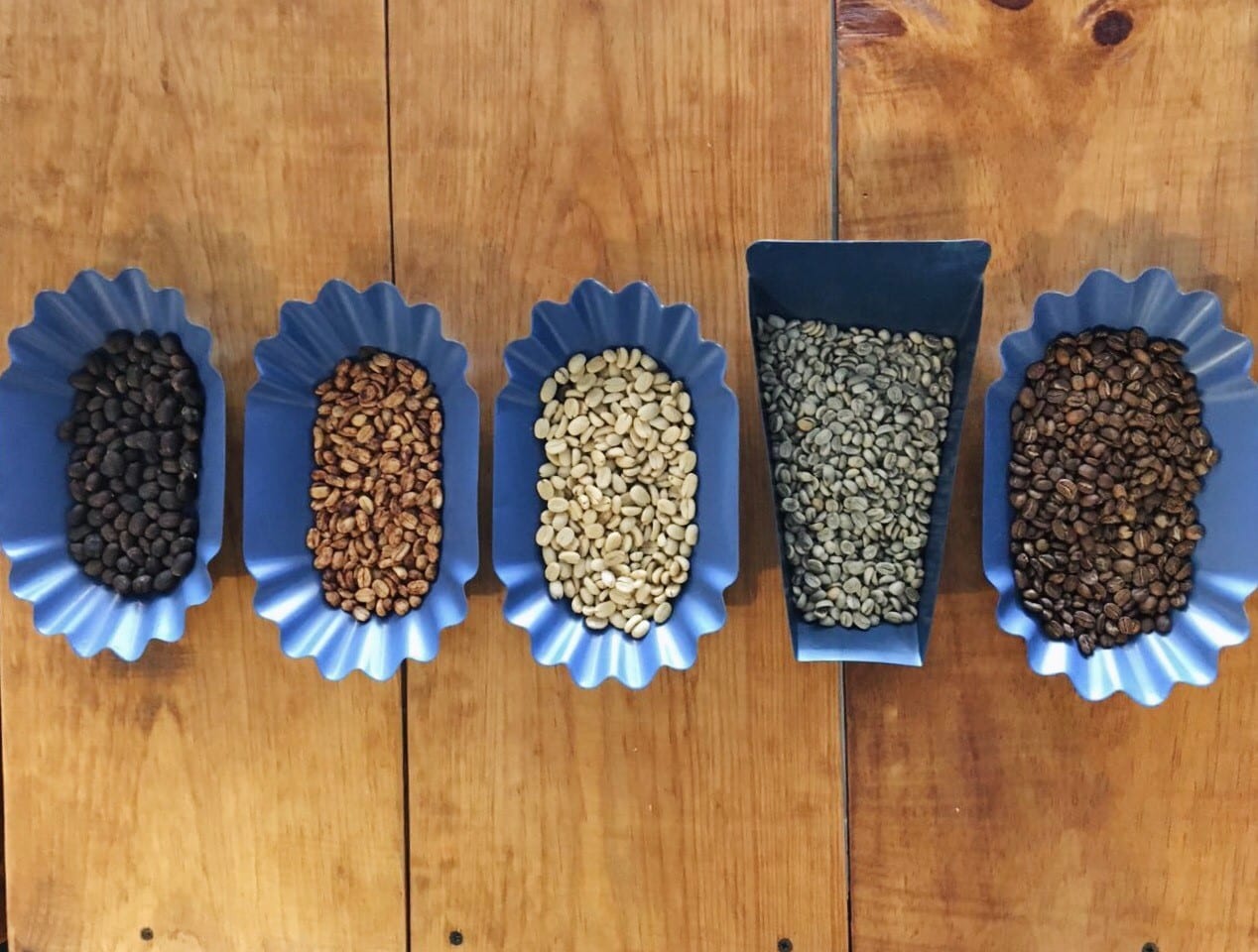
Why is coffee sour?
If you're drinking coffee and you ask the barista,"Why is coffee sour?" One of the most common words the barista replied was: "Because coffee beans are fruits of plants, fruits will have fruit acids...!"
Let's first understand where coffee comes from. Coffee is the seed of the coffee tree. From the outside to the inside of a fruit, they are: 1. exocarp, 2. pectin (meat), 3. seed shell (sheepskin layer), 4. silver skin, 5. coffee seed. (It's very similar to mango fruit, but mango is very big.)
Imagine that you are squeezing lemon juice today, but when you cut the lemon, you cut the lemon seed, so the seed falls into the drink. Then you bite into the seed several times. Is it sour? Or if you were eating watermelon today and accidentally bit into a mouthful of seeds and crushed them, did you get a mouthful of sour?
So, even if you buy raw coffee beans to go home and grind them into water to drink, the taste is just plant juice flavor, which does not carry acid, so where does the sour taste in coffee come from?
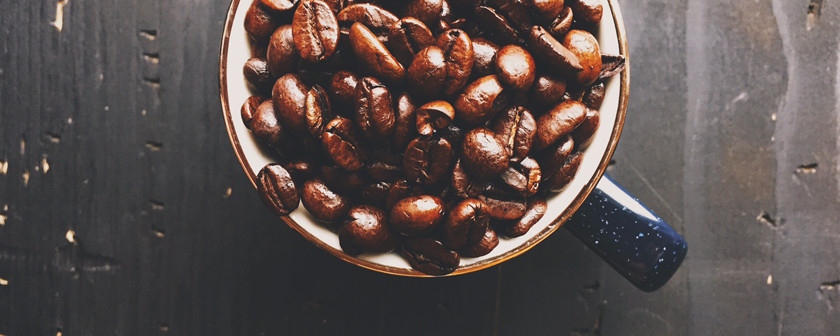
It all starts with the roasting of coffee. Coffee beans contain a variety of organic acids and sugars when they are raw, and these substances are pyrolyzed with the endothermic heat of the beans during roasting. Then caramelization and Mena reaction (Maillard reaction) are carried out, and the sour taste is also produced in the process.
Back to the beginning of the sour taste, because the sour taste is produced in the baking process, so if the coffee raw bean flavor before the product is sufficient, and the bean baker gives enough heat, then more acid can be obtained when the baking degree is shallower. Empirically, the sour baking degree falls around the end of an explosion, when the coffee flavor development is more comprehensive, complete and the strongest. If the bean baker continues to heat, the acid composition will be reduced due to pyrolysis, so the sour taste will be greatly reduced after medium and deep baking. In general, the better the quality of raw beans (hard), the more sour substances in raw beans, so many high-altitude high-quality coffee is more sour when the roasting degree is shallow.
The acidity of coffee largely depends on the roasting degree of coffee beans:
The same coffee beans; the sour beans are lightly roasted.
The same coffee beans; the less sour the deep-roasted coffee.
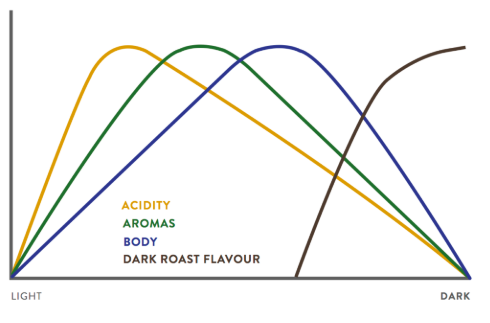
In fact, the acidity in coffee is mostly sour, as long as the roaster and barista can show the sweetness well, so that the sweet and sour feeling can be balanced and let go of the established impression of coffee. Drinking it as a cup of sour and sweet fruit tea is also a healthy and good choice.
Of course, the acidity of coffee is also related to many other complex factors. the type, strength and quality of acid also depend on the variety and producing area of coffee beans:
Coffee beans contain Citric (citric acid), Malic (malic acid), Quinic (quinic acid), Phoshoric (phosphoric acid), and other acid compounds. Raw coffee beans of different varieties and elevations; they contain different levels of acid compounds. So some coffees are suitable for shallow roasting (coffee beans are lively, mild, fragrant or low in acid), while others are suitable for deep roasting (the acidity is too exciting when shallow roasting).
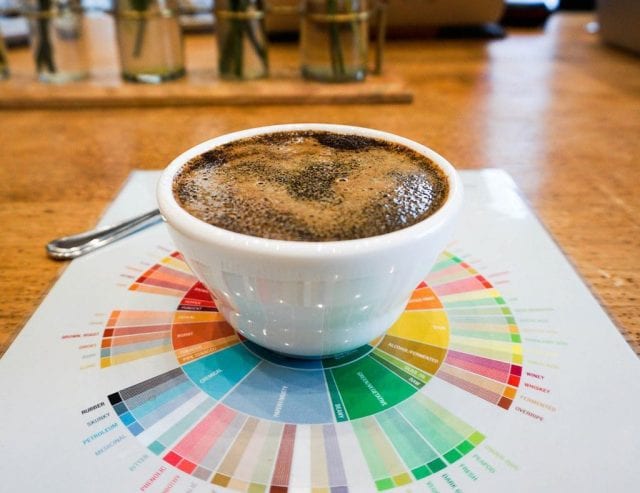
In addition, the temperature of brewing coffee also has an effect: (but to a lesser extent)
The same coffee beans; slightly cooler water is more likely to brew sour coffee.
The same coffee beans; the higher the water temperature, the lower the acidity; but it is easier to soak the bitter taste.
Some people say that if the water temperature is too low, the coffee will be sour, and brewing at a higher water temperature can slightly reduce the sour taste. In fact, this is very one-sided. When the coffee is roasted and the internal ingredients are fixed, the acid will be more sour and cannot be changed. However, because of the sour and bitter ingredients in coffee beans, the amount of extraction is different because of the water temperature during cooking, and the bitterness and sour taste are inversely proportional to each other in the mouth. Therefore, at low water temperature, the extraction rate of bitter substances is relatively slow, and the amount of extraction is naturally less. Although acid extraction is also affected, it is not as large as bitter components. Under the condition of being reduced by bitterness, unwitting people think that low temperature brewing has made the coffee sour.
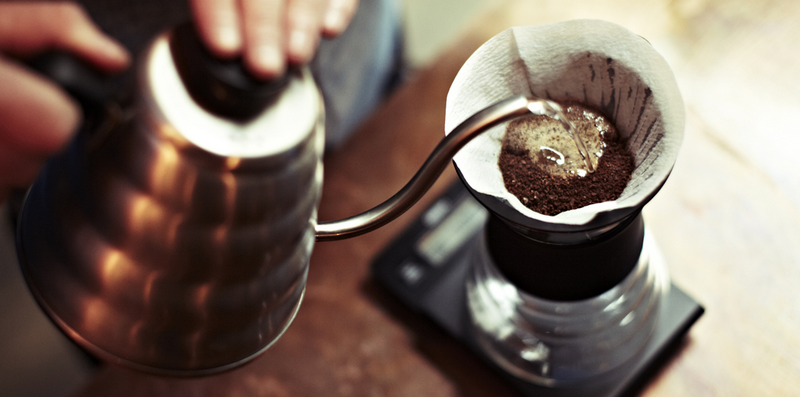
As for why the coffee turns sour when it is cold, it is because the taste buds on the human tongue are slow to feel the sour taste when the coffee is brewed at a high temperature. when the coffee is cold, it reacts acutely, resulting in the illusion that acidity increases significantly.
When you know where the sour taste in your coffee comes from, you will naturally be able to quickly and accurately choose the coffee items that suit your preferences.
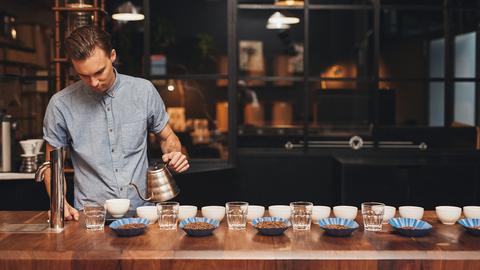
There are also interesting connections between coffee acidity and roasting.
Why lattes and cappuccinos with milk are dark roasted coffee; besides being stronger to highlight the coffee flavor, another reason is that milk is the nemesis of acid.
Coffee "sour" and "coffee flavor" under light roasting are closely related; maybe you will drink flowers, fruits, nuts; but with astringency is only a line, and this astringency can only be improved by roasting.
Medium-roasted coffee has the most balanced flavor; slightly sour, not bitter; showing the best sweetness; but it lacks the "sour" flavor.
Coffee under deep roasting can drink chocolate fragrance, caramel fragrance flavor; but with the bitter is only in the first line, this bitter can only be improved by roasting.
The same volume of coffee is obtained; the amount of light roasted coffee beans used will be higher than the amount of dark roasted coffee beans.
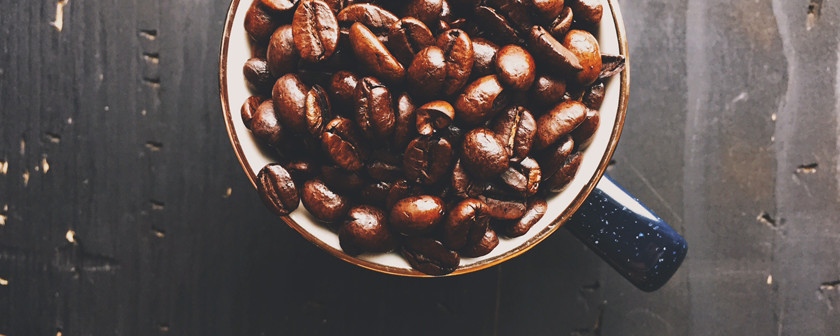
Last
Caffeic acid is not a criterion for judging whether the quality is good or bad or whether it is fresh or not. it is all a matter of subjective taste. Coffee has a variety of flavors, and this is what makes it interesting!
It is possible that coffee is sometimes like juice, sometimes like flower and fruit tea, and sometimes like a cup of cocoa. Like to drink non-sour coffee does not mean that do not understand coffee, not sour coffee is not all bad and inactive coffee, coffee sour and unsour is not politically correct. There is no right or wrong preference, and the taste is very subjective. Only whether you like it or not, there is no good or bad, and your preferences will vary with your memory and mood. It's great to drink as you please.
END
Important Notice :
前街咖啡 FrontStreet Coffee has moved to new addredd:
FrontStreet Coffee Address: 315,Donghua East Road,GuangZhou
Tel:020 38364473
- Prev
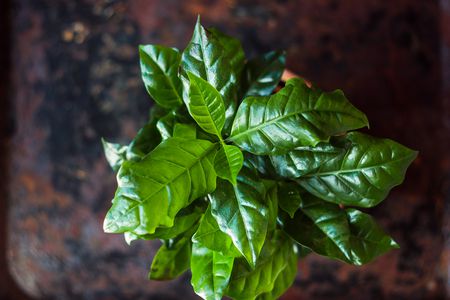
Areas and conditions suitable for growing coffee | how to grow Arabica coffee?
Professional coffee knowledge exchange more coffee bean information Please pay attention to the coffee workshop (Wechat official account cafe_style) Coffee planting areas and conditions since the coffee-producing countries we often come into contact with are tropical and subtropical climates between the Tropic of Cancer and Cancer, some people may take it for granted that coffee grows in the high temperature tropics, but in fact, coffee is usually planted.
- Next
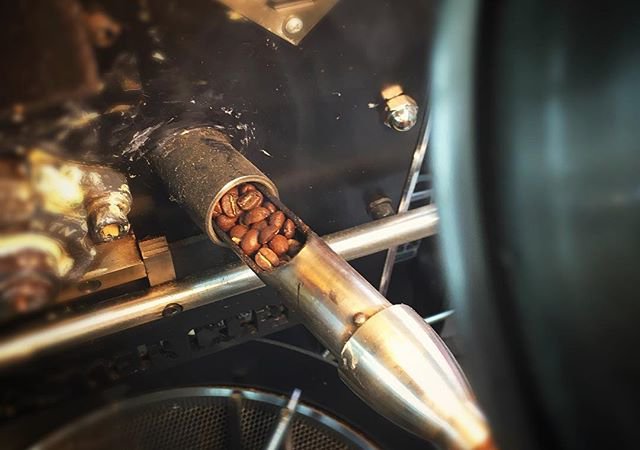
How to bake boutique coffee beans shallow moderate depth roasted coffee beans turn yellow one burst point two burst points
For more information on coffee beans, please pay attention to roasting in the coffee workshop (official Wechat account cafe_style). Roasting is the process of heating beans. Raw beans without baking smell only a little grassy and slightly fruity, but taste almost meaningless. Through the heating process, baking causes a series of complex chemical changes inside the beans, which in turn releases
Related
- Beginners will see the "Coffee pull flower" guide!
- What is the difference between ice blog purified milk and ordinary milk coffee?
- Why is the Philippines the largest producer of crops in Liberia?
- For coffee extraction, should the fine powder be retained?
- How does extracted espresso fill pressed powder? How much strength does it take to press the powder?
- How to make jasmine cold extract coffee? Is the jasmine + latte good?
- Will this little toy really make the coffee taste better? How does Lily Drip affect coffee extraction?
- Will the action of slapping the filter cup also affect coffee extraction?
- What's the difference between powder-to-water ratio and powder-to-liquid ratio?
- What is the Ethiopian local species? What does it have to do with Heirloom native species?

